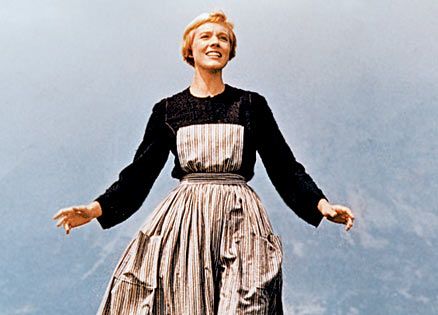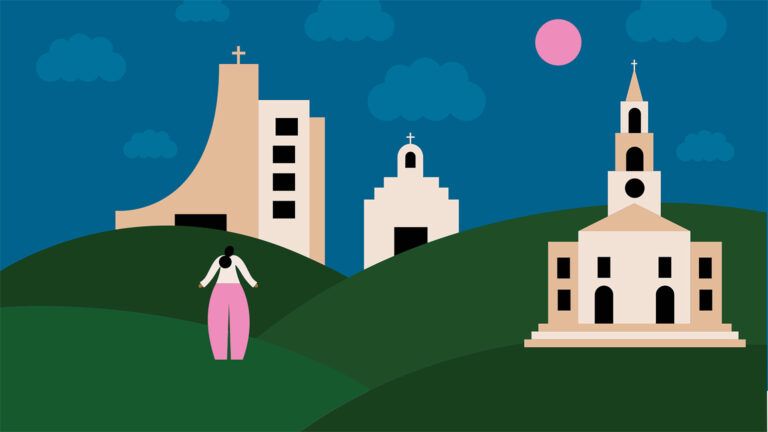I’d already seen 30 patients and it wasn’t even lunchtime.
“Next!”
This one was clean-cut. Around my age. Walked with a limp. He eased himself into the seat, his jeans sliding up just enough to reveal his ankles—lightweight carbon fiber and plastic. A double amputee.
“Name and date of birth?” He took out his ID and handed me his forms.
All part of the routine. Scripted greeting, tap the vein, draw a vial of blood, cap the sample, repeat with the next veteran. That’s what a lab tech does at the VA Medical Center in Dallas. I’m one of 16 technicians on staff; we see around 900 patients a day. You do the math. Appointments are quick, five minutes tops. Most days, I barely have time to look my patients in the eye. I fix my gaze on their arms and the deep-crimson blood swirling through the syringe.
READ MORE: A HARVEST OF HOPE FOR VETERANS
Blood doesn’t faze me. Never did. I was a combat medic, trained to save lives in chaotic, hostile situations. On the battlefield, right in the middle of the action, I dressed soldiers’ wounds. Seventeen years earlier I’d served in the Battle of Mogadishu—or, as you probably know it, “Black Hawk Down.” A peacekeeping mission in Somalia’s capital that suddenly went bad.
Nothing routine about that mission. The dusty city was eerily empty when I arrived. Many citizens were in hiding, afraid for their lives. Thousands of American soldiers had been sent to intervene in a conflict between Somali militiamen and the government. Overnight, the city had become a war zone. When you patrolled its winding streets, you stayed with your battalion and kept your gun ready. Around every corner, behind every doorway, the enemy could lie in wait.
We’d claimed an evacuated building as our medical base. Grime covered the floors, the whole place a few knocks away from tumbling down. I treated my fellow soldiers there, then ventured back out into the streets to find more of the fallen.
Bullets whizzed past me, coming from every direction. Men from both sides lay in the muddy gutters. Many were missing limbs, some already dead, beyond help. I was only a few years out of high school, and I was terrified. But I fell back on my training. I had a job to do.
Just like now. I set aside the paperwork, returned the ID. “Please roll up your sleeve,” I said. I opened a desk drawer and took out an elastic tourniquet and a sterile syringe. I wrapped the tourniquet around the vet’s arm and waited till his veins darkened. “You might feel a little pinch,” I told him. I stuck his vein and pressed down. Blood rushed into the empty tube.
“This may sound like a strange question,” the soldier said, “but do you recognize me?”
Recognize him? With my patient load? I shook my head. “I’m afraid I don’t,” I said. “I’m sorry.” It was easy to forget the soldiers the second they left my office. One day ran into the next. Not like…
“Somalia,” the soldier said.
READ MORE: SOLDIER OF THE YEAR
I looked the guy in the eye, studied his face. There was something familiar. All at once, the memories came flooding back.
On that mission in Mogadishu, I’d spotted one of our own lying in the dirt. A guy no older than me. An RPG had exploded nearby and shredded his legs. A bloody, mud-streaked bandana covered his face, except for a slit where frightened brown eyes peered out.
“I’m going to get you to safety!”
“No, please,” the soldier begged, his voice gravelly, distant. “Just leave me here. Let me die.”
“You know the rule. No matter what, we all go home together.” I grabbed him by his shirt and started dragging him across the street, back toward our makeshift medical base.
Now I looked at the veteran sitting in my office. Really looked. His prosthetic legs. His brown eyes. There was no doubt in my mind. It was him.
“How are you doing?” I asked.
“Got new legs, as you can see. I’m doing well, man. Happy to be alive.”
Happy to be alive. So was I.
READ MORE: FOCUSED ON THOSE WHO SERVED
I’d been so determined to get the wounded soldier back to safety that I’d let down my guard. We were nearly at the base when he jerked upright and clutched my arm with almost unnatural strength. “Enemy fire!” he yelled. “Duck and cover!”
I dropped to the ground and covered his body with mine. Shots rang out from an alleyway. A fusillade of bullets shattered the brick wall just above our heads. A Somali militiaman had nearly gunned me down.
When the coast was clear, I dragged the man into the building and dressed his wounds, tying his legs with a cloth to stop the bleeding. Eighty-four of our soldiers were wounded in the battle, eighteen were killed. I could have been one of them. In the monotony of my day-to-day routine, I’d almost forgotten about that. “How did you recognize me?” I asked. My face had been just as dirty as his. There hadn’t been time to exchange names. And it had been so many years ago.
“How could I forget?” he said. “You wouldn’t leave me that day. I always hoped to see you again, somehow, to thank you. You saved my life.” He stood up and gave me a big hug.
I watched him walk away, his limp a sign of valor. All part of the routine? Never again.
Did you enjoy this story? Subscribe to Mysterious Ways magazine.




